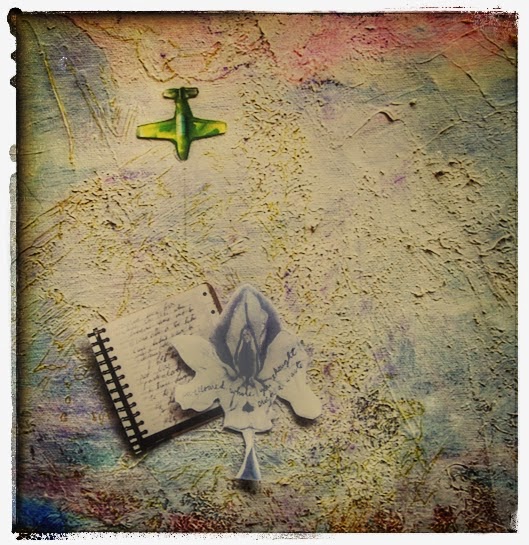They say when you come to the end of your life
your memory reaches back to those practices
and traditions you learned in childhood.
I do not know if this is true. There were only three of us
aboard. The pilot…a woman flying the double prop Caravan, a bush plane.
Behind my seat: a case of fuel oil, bales of straw
for sled dog teams, Pampers for the village babies,
Squeezed in next to me: a Native man wearing a cowboy hat
his hatband a string of ivory beads
carved into the head of a raven or bear.
I twiddle a pen between my fingers
watch the land and sea-caps drop away.
Did I remember to bring my bathing suit, so I can
take a steam at night with the women?
they are modest in New Stuyhawk, though
I don’t mind being naked.
Slow roll, pitch and dive.
I grip my pen, swallow
hard, hard into the belly.
A big hand is pushing
down on us
we can’t climb, can’t
find calm air
Long slow breathing helps, with the terror.
I am not a religious person, but
it is time to pray now, the air is angry.
I open my book. look.
An orchid is pressed there
I lean down and smell it
one last time.


What strikes me as a pivotal point in the poem is the nervousness — reflected in the twiddling pen and the thinking about a bathing suit — distractions, in a way, that give rise to a deeper anxiety when the plane is clearly going down and there's no escaping the attention to a very visceral here and now.
Yes. I think you go through stages when things start to go wrong. We made it safely to the ground, but what I remember most is hardly being able to stand up upon deplaning, the wind was so fierce. Kiss the ground.
Of all the words here, I love "twiddle". It's the perfect word to capture all the nervous habits we indulge when we know something's coming, but we don't quite know what.
What's a "sea-cap"? I can't find it defined anywhere. Silly dictionaries want to tell me about seascapes.
Oh, well in poetry, you get to make up new words!
So sea-cap refers to a wave crest breaking into white foam called a "whitecap" only I changed "white" to "sea"…
I love the line, "I don't mind being naked," as it does exactly that: makes you naked to the reader. In that moment I know a bit about you, and despite the fact that I will soon discover you twiddling your nerves away, I will not forget that you are one who is comfortable in her own skin; the realization itself providing that precious reminder that for all of our strengths (being comfortable naked is one), we are still vulnerable—there are just certain things that can, albeit mostly temporarily, bring us to our knees.
Now a question: Was your choice to write in two tenses intentional? I read this several times–the "there were only three of us" versus using 'there are only three of us,' as if you tell this in retrospect. You "lean down and smell it one last time" telling us that your fear was so great that you took one 'last' sniff. It struck me further that without the use of two tenses, I would have no idea whether or not you made it.